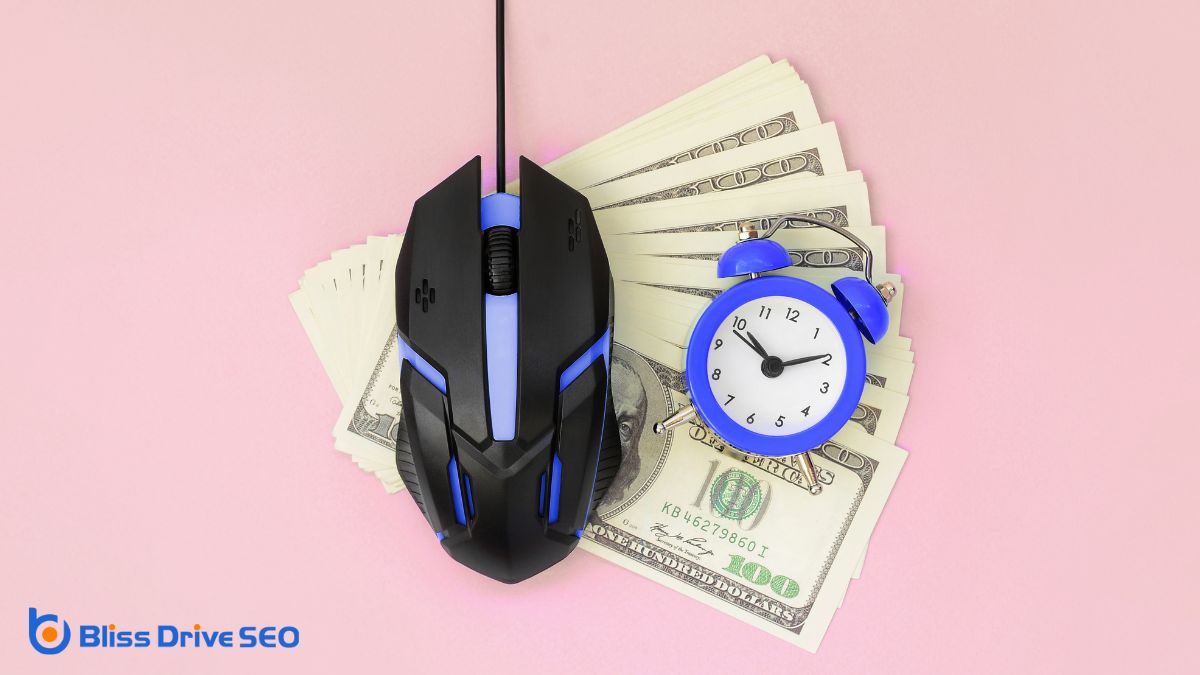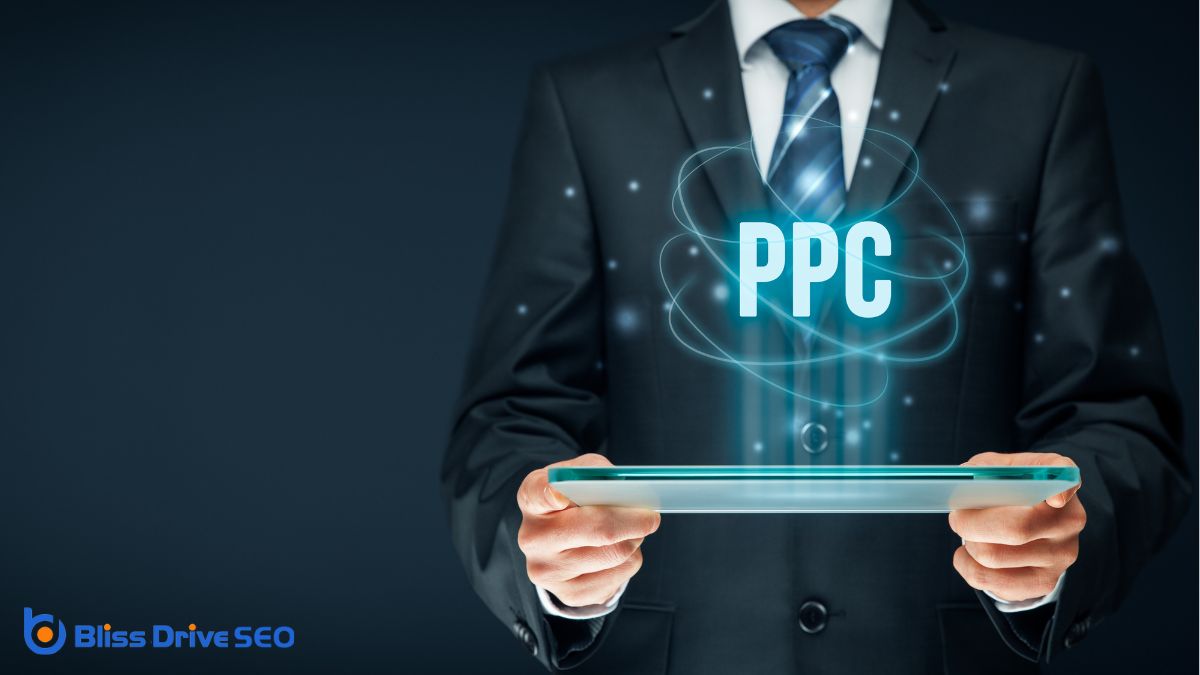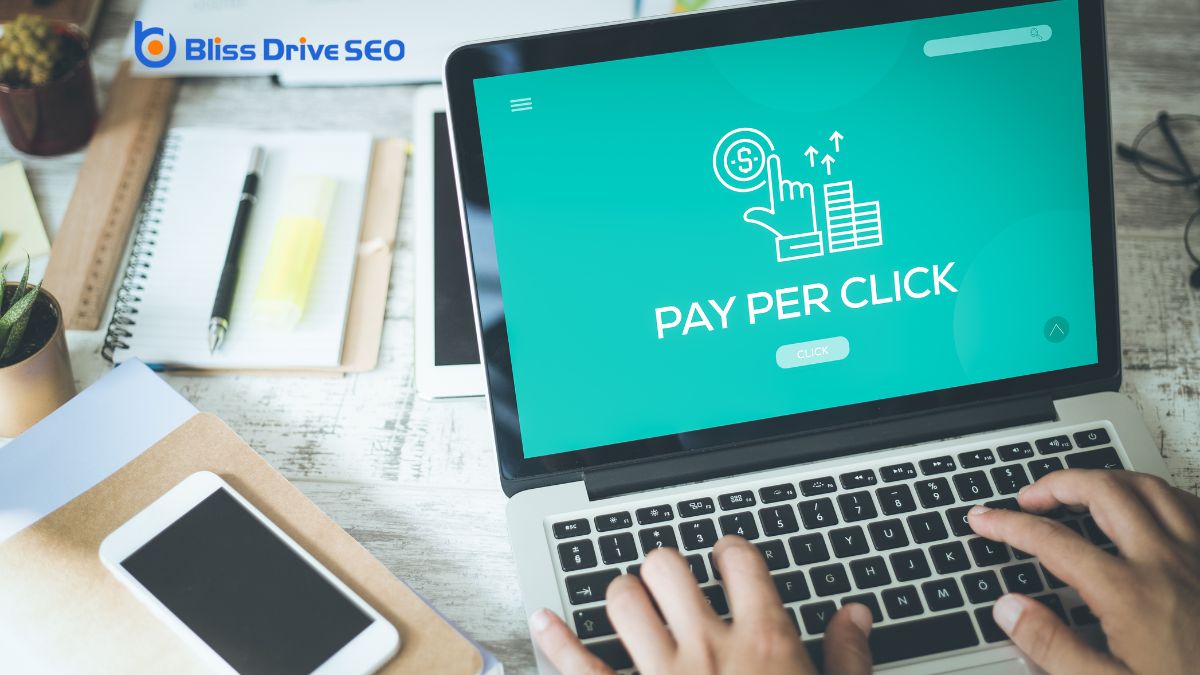Digital Marketing Services
Learn More About Us

Pay-per-click (PPC)An online advertising model where advertisers pay a fee each time their ad is clicked. advertising can become costly without careful management, potentially leading to budget overruns. You need constant monitoring to stay competitive as competitor strategies and consumer behaviors change. Click fraudThe act of repeatedly clicking on an ad to generate fraudulent charges or revenue. can waste your budget with fake clicks, while reliance on platforms limits control over ads. The traffic boost is often short-term, with limited value for building lasting relationships. If you're curious about how to effectively navigate PPC challenges, find out more.
Pay-per-click (PPC) campaigns can quickly become costly endeavors if not managed carefully. You might think setting a budget solves this, but unexpected expenses can arise. KeywordsWords or phrases that users type into search engines to find information. can be more expensive than anticipated, and competitors might bid aggressively, driving prices up.
If you're not vigilant, you might overspend, depleting your budget without achieving the desired results. It's essential to understand that PPC costs are influenced by factors like industry competition and the quality scoreA metric used by Google Ads to measure the relevance and quality of keywords and ads. of your ads.
High-competition industries require higher bids, leading to potential budget overruns. Additionally, without careful planning, you may end up paying for clicks that don't convert into sales, wasting valuable resources.
To avoid these pitfalls, you must be strategic in your keyword selection and budget allocationThe process of distributing a budget across different campaigns and ad groups..

Although PPC campaigns can be powerful tools, they demand constant monitoring and optimization to remain effective. If you don't keep an eye on your campaigns, you might miss out on opportunities or let costs spiral out of control.
Regular adjustments help you stay competitive and guarantee your ads reach the right audience. Here are a few reasons why constant attention is essential:
Staying proactive helps you maximize your investment.
While maintaining an optimized PPC campaign demands constant vigilance, there's another lurking challenge—click fraud and invalid clicks. These occur when automated bots or malicious competitors generate fake clicks on your ads. They don't have any genuine interest in your offerings, which can quickly drain your budget without delivering real results.
It's frustrating because you're paying for interactions that don't leadA potential customer referred by an affiliate who has shown interest in the product or service but h... to actual customer engagementThe interactions that users have with a brand’s content on social media. or conversions. To combat this, you need to implement protective measures. Utilize advanced PPC platforms that offerThe specific product or service being promoted by affiliates. fraud detection and protection features.
Monitor your campaigns for unusual activity patterns and set up alerts. By staying proactive, you can minimize the impact of fraudulent clicks. Remember, understanding and addressing click fraud is essential to maintaining an effective and profitable PPC strategy.
Steering through the landscape of competitive and saturated markets can be intimidating, especially when you're managing a PPC campaign. In such environments, your ads compete with numerous others, making it hard to stand out. High competition often drives up costs, requiring a larger budget just to maintain visibility.
To navigate these challenges, consider:
These strategies can help you manage your PPC campaigns in crowded markets more effectively.
When users frequently encounter the same ads across multiple platforms, they often develop ad fatigue, leading to a decrease in engagement. You might notice your audience becoming indifferent and your click-through rates dropping. This is because users subconsciously start to ignore ads they've seen repeatedly, a phenomenon known as banner blindnessThe tendency of users to ignore banner-like information on websites.. To keep your PPC campaigns effective, you need to refresh and diversify your ad content regularly. Understanding how ad fatigue and banner blindness impact your campaigns can help you strategize better. Here's a quick breakdown:
| Symptom | Impact on Campaigns |
|---|---|
| Ad Fatigue | Decreased user engagementThe level of interaction and involvement users have with social media content. |
| Banner Blindness | Lower click-through rates |
| Repetition | Ignored ads |
| User Indifference | Reduced ad effectiveness |
When you're handling multiple pay-per-click campaigns, you'll find it can quickly become a time and resource drain.
Juggling numerous campaigns makes it tough to accurately track and measure each one's performance.
Without careful management, you risk wasting your budget and missing optimization opportunities.
Managing multiple pay-per-click (PPC) campaigns can be incredibly time-consuming and resource-intensive, especially if you're juggling various platforms and target audiences.
Each campaign demands constant attention, from keyword researchThe process of finding and analyzing search terms that people enter into search engines. to ad creation and bid management. You need to adapt quickly to changing trends and competitor strategies, which can easily become overwhelming.
Balancing these tasks requires a significant investment of your time and resources.
Here's why managing PPC campaigns is complex:
These challenges can drain your resources, making it difficult to maintain effective PPC campaigns.
Tracking the performance of multiple PPC campaigns can quickly become a headache because of the sheer complexity involved.
You're juggling different platforms, each with its own tracking systems and metrics. It's easy to feel overwhelmed as you try to make sense of diverse data sets. You need to constantly switch between dashboards and reports, which can be time-consuming and confusing.
You might even find discrepancies in data, making it tough to measure success accurately. Without a clear system in place, you risk making decisions based on faulty insights. This can lead to wasted budgets and missed opportunities.
To effectively manage your campaigns, you must streamline your tracking methods, but even then, it's a demanding task that requires constant attention and adjustment.
When you rely on Pay-Per-Click (PPC) advertising, you're tied to ongoing expenses to maintain visibility.
The traffic boost you gain is often short-lived, disappearing as soon as you stop funding your campaigns.
This approach rarely builds lasting customer relationships or brand loyaltyThe tendency of consumers to continue buying the same brand's products or services., offering limited long-term value.
Despite its immediate benefits, pay-per-click (PPC) advertising requires continuous financial investment to maintain visibility and effectiveness. You might find that once you stop pumping money into your PPC campaigns, your online presence rapidly diminishes.
This dependency can be a significant drawback if you're looking for a long-term strategy. With PPC, you're fundamentally renting visibility rather than owning it.
Consider these points:
Understanding this dependency helps you make informed choices about your advertising strategy.
While PPC campaigns can drive a sudden influx of visitors to your site, this traffic often proves fleeting and doesn't contribute substantially to long-term growth. You might see a temporary spike in numbers, but once the budget runs out or the campaign ends, those visitors tend to drop off.
This is because many PPC clicks come from users who are merely browsing or aren't ready to commit to a purchase. Without a solid strategy to convert these visitors into loyal customers, you could find yourself constantly needing to pay for more clicks.
It's vital to reflect on how to retain these visitors, perhaps through engaging content or follow-up offers, to guarantee your investment provides value beyond a mere temporary boost.

Relying on third-party platforms for pay-per-click (PPC) campaigns can quickly become a double-edged sword. While they offer powerful tools for targeting and analyticsThe systematic computational analysis of data or statistics to gain insights and support decision-ma..., you're also at their mercy.
These platforms can change their algorithms, policies, or costs without notice, impacting your campaigns considerably. This dependency can lead to several challenges:
Understanding these drawbacks helps you navigate the complexities of PPC.
Balancing reliance on third-party platforms with other marketing strategies can safeguard your campaigns and guarantee more sustainable results in the long run.
In pay-per-click advertising, you face several challenges. High costs can strain your budget, and you'll need to constantly monitor and optimize your campaigns. Click fraud and invalid clicks can eat into your returns, while competitive markets make it harder to stand out. Ad fatigue and banner blindness reduce effectiveness, and managing multiple campaigns adds complexity. Plus, there's limited long-term value and a dependency on third-party platforms. Weigh these disadvantages carefully before diving in.
